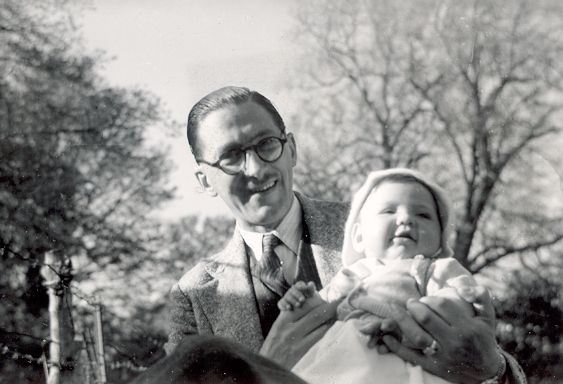
When I was only four weeks old they took me from my mother and gave me to strangers. I didn’t see her again for over twenty years.
This was a perfectly normal event in England. It was done in the best interests of the child and according to the best principles and practice of social work and the law regarding adoption. My natural mother was unmarried, and my adoptive parents were good people, but childless.
I was lucky and enjoyed not only a loving childhood, but also an adoptive father who was a man of great compassion and honour, and ahead of his time in his thinking. Against the prevailing wisdom he not only told me from my earliest memories the story of my adoption, but also kept my natural mother informed through letters and photos as I grew up. The year I turned 21 he arranged a meeting between us and she became a wonderful part of my own family and an acknowledged and well-loved grandmother of my children. I was with her holding her hand when she died aged 86, the year after my father had passed away at the same age.
Nowadays the principles and practice and the law regarding adoption have changed dramatically. Far from the old advice to sever all ties between natural parent and child and to keep the knowledge of adoption from the child, contact is now encouraged in all but the most difficult of circumstances and adopted children have the legal right to full information about their background.
Why am I telling you all this, I hear you ask?
Well, a few days ago I read that Staffordshire County Council’s social work department banned a couple from adopting because the father had been seen using an e-cigarette. Not even a real cigarette! And at least “13 other councils across England state they will not place under-fives with e-cigarette users. They include Bury, Kirklees, North Tyneside, Durham, Warrington, West Sussex, Poole, Cornwall, Camden, Wolverhampton, Sandwell, Walsall and Dudley councils.”
What, in the name of all that’s holy, are they so frightened about? We know that even real cigarettes pose no danger from secondhand smoke: for example, see this WHO-commissioned study on lung cancer – Boffetta 1998 – which concludes there is no significant risk, and even some benefits, to children. To be concerned about secondhand vaping is, frankly, stark raving bonkers.
So, formal adoption services have now performed an absolute somersault, all in the name of ‘safeguarding the children’. In the past, adoptive parents were potentially banned if they planned any contact with the natural birth mother, and deeply frowned on if they didn’t maintain the pretence of natural parentage to the adopted child. Nowadays would-be adoptive (and foster) parents are banned if they smoke, and banned even if they don’t smoke but use e-cigs. As our last article ‘Of Puppies and Politicians’ said: “Every day sees…new definitions of who are considered to be fit parents…they maintain if you are obese, if you drink even moderately, if you smoke you are not fit to be a parent…the obese, those who drink moderately and those who smoke (are) barred from adopting or fostering children. Worse still, while they are denormalising the obese, moderate drinkers and smokers, children are still suffering real abuse both by a small number of parents and state run children’s homes…”
As an example of real child abuse, and in stark contrast to the extraordinary vigour with which social and other statutory services protect children from the imagined harm done by cigarette smoke and e-cig steam, here is the full published Serious Case Review into the tragic story of Blake Fowler who was killed aged 7. It makes harrowing reading. He was let down on at least 18 separate occasions when there could have been genuinely protective state intervention. Instead, there was lethargy and incompetence.
I was lucky. I survived, and was allowed to be brought up by a decent and loving couple.
Oh, did you guess? My father was a lifelong smoker.
